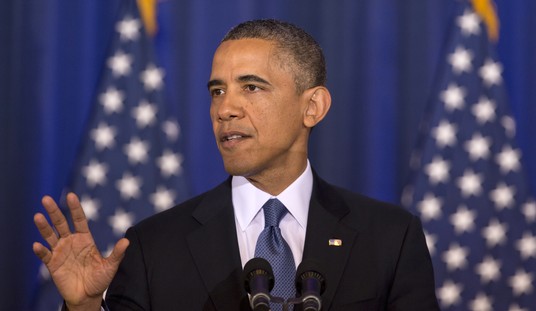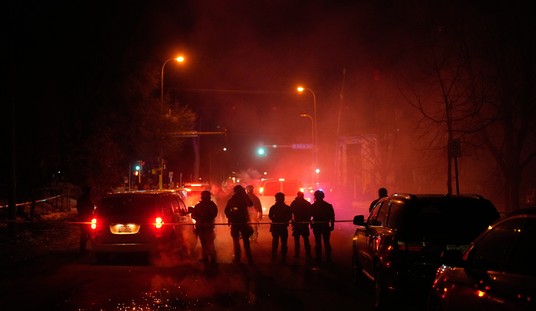The House Rules Committee has voted 7-2 to stop the sale or leasing of a few score commercial Boeing planes to Iran. But President Obama has promised to veto the bill, saying it would “undermine the ability of the United States to meet our JCPOA commitments.”
Texas Republican Jeb Hensarling disputed this:
[Hensarling] reminded the committee that the Treasury Department sanctioned Iran Air in 2011 for using its planes to transport military-related equipment on behalf of the Islamic Revolutionary Guard Corps.
The Treasury Department removed the sanctions as part of the Iran nuclear deal, but Hensarling says Iran’s behavior “remains unchanged.” Iran Air has continued to use its aircraft to fly weapons and resupply routes to Syria, he said.
“Also last month, Iran conducted military drills using Boeing planes that have been a part of its air force fleet for many years,” he said. “This is not surprising as Boeing itself has posted that its commercial jetliners ‘make an ideal platform for a variety of military derivative aircraft.’”
Denny Heck (D-WA) claimed that the Treasury Department has “minimize[d] [the] risk” that Iran would use the new Boeings for military purposes, and said that if the U.S. doesn’t sell Iran the planes, “a non-U.S. company like Airbus” (a European consortium) may do so instead.
By Heck’s logic, the U.S. should always sell militarily usable items to America-hating, terror-supporting, expansionist regimes, since someone else will anyway.
Iran, of course, does not lack suitors when it comes to selling it military items. Russia’s RT News blares: “Russia, Iran plan $10 bn arms sale to Tehran.” And that deal would occur “following the successful delivery of Russia’s S-300 air defense missile systems to the country in October.”
Under strong pressure from Israel, Putin refrained for years from selling Iran the S-300s, which will be deployed to protect its nuclear sites. But in July 2015, just after the signing of the JCPOA agreement — which, we were told, would usher in an era of peace — Putin approved the sale.
Now, a Russian official says “all the S-300s that had been shipped to Iran will be put into operation by year’s end.”
As for the new $10 billion sale, the same official says it will include “T-90 tanks, artillery systems, and various aircraft” for Tehran.
Because of UN Security Council restrictions, the sale might have to wait — but only until October 2020, when those restrictions will be lifted.
The negative developments since the nuke deal was signed, among others, not only include Russia’s arms sales to Iran, but also the emergence of Russian-Iranian military cooperation in the region. Considering this reality, President Obama’s insistence on the Boeing sale, and on treating Iran as a responsible party in general, can at best be understood as a case of severe strategic irrationality.
And the Boeing sale is not all. The Wall Street Journal reports that Obama is also seeking to bolster the deal before leaving office by helping more American businesses enter the Iranian market and removing additional U.S. sanctions.
Ephraim Asculai and Emily Landau, experts at Israel’s Institute for National Security Studies, note some other problematic developments since the JCPOA was inked. They include:
— Iran’s “construction and testing of more precise long-range missiles that can carry a nuclear payload”;
— That Iran has “twice exceeded the produced heavy-water storage limit in the deal”;
— And reports that “German Intelligence found Iran to have made many attempts in 2015 to procure technologies and components that could be used in a nuclear weapons program.”
To those, we can add:
— Iran’s seizing of U.S. sailors and harassment of U.S. naval ships in the Persian Gulf;
— Iran’s continuing to arrest and imprison U.S. hostages in hopes of further large ransom payments;
— Iran’s providing Yemen’s Houthi rebels with missiles that have already been fired at U.S. ships;
— Iran seeking to establish a permanent military presence in Syria;
— And Iran fomenting subversion in Bahrain, Kuwait, and other Arab countries.
Asculai and Landau assert that President-elect Donald Trump “is no doubt correct that the JCPOA is deeply flawed, and did not achieve what it originally set out to do.” The new administration, they say, will have to “take a more determined stance towards Iran’s activities” so as to “repair … the damage that has been done.”
Given how severely the region has deteriorated under Obama’s tenure, repairing that damage will be a challenge for the new administration — which, before taking office, has already been accused of softness toward Iran’s ally Putin.
Engaging Putin diplomatically, and setting red lines for him, may be worth a try. But it won’t mean much unless accompanied by measures against Pax Iran.









Join the conversation as a VIP Member